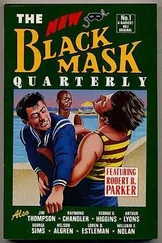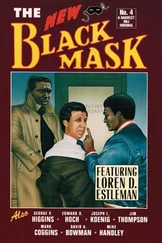“Piper?” Amy peeked around my cube doorway. I didn’t usually allow company up in my cube, preferring to do my visiting out in the common areas.
“What’s up, Monster?” I had started calling Amy “the little monster” back when we worked together in electric. It was a deserved nickname, as she was foul-mouthed and foul-tempered and disrespected just about everyone and everything. But I loved Amy in spite of myself, and she made me laugh. She wanted to be so tough, and she was in a street-urchin way, but I thought of her as a spitting, hissing kitten that you could hold at arm’s length by the scruff of its neck. Still, kittens have sharp claws and teeth.
Now Amy rushed to the side of my bunk and scrambled up on my footstool. I could see she was upset. She was supposed to go home before me, to upstate New York. I knew there was uncertainty waiting for her at home too, though not as dire as Pom-Pom’s situation. For several weeks she had been trying to sort out her living and work arrangements over the phone, and she was stressed out. She was trying to get hold of her father with increasing desperation, and having trouble with the phone system. As she explained her frustration, the words spilled out faster and faster, until she choked on them, hiccupping.
“Come up here, Amy.” I made room on my bed, and she scrambled up. “I’m sorry things are uncertain right now. It’s going to be okay, you’re going to be home soon.” I put my arm around her while she cried.
She buried her head in my lap. “I want my daddy!”
I shushed her and patted the blond curls she was so proud of, and inside I grieved angrily over the insanity of locking up children, and then returning them to neighborhoods that were more desperate and dangerous than jails.
I SAW on the callout that I was scheduled to spend my afternoon in a mandatory prerelease class on housing, and my blood pressure started to rise. All federal prisoners are required to go through a series of prerelease classes before they reenter society. This made perfect sense. Many of the women in Danbury had been cloistered away in prison for years, and despite the harshness of being institutionalized, it was also infantilizing. The idea that they were going to hit the ground running and be able to cope with the day-to-day requirements of life “on the outs” was ridiculous.
I had been pretty curious about what the reentry classes would convey to us. The first one I was required to attend was on health. I showed up in the visiting room at the appointed time; chairs had been set out for twenty women, and a CO who worked in food services down in the FCI was there to lead it. I leaned over and asked Sheena, seated next to me, why he was teaching.
“He used to play professional baseball,” she replied by way of explanation.
I thought about that for a minute, as if there were any sense to it. “But why is someone from Danbury teaching this class-and why not someone from health services?” Sheena rolled her eyes at me. “Are all the classes taught by the prison staff? They don’t work on the outside, with ex-offenders. They spend all their time here. What do they know about reentry?”
“Pipes, you’re looking for logic in all the wrong places.”
The guy from food services was very nice and very funny. We liked him a lot. He told us that it was important to eat right, exercise, and treat your body as a temple. But he didn’t tell us how to get health care services that people with no money could afford. He didn’t tell us how we could quickly obtain birth control and other reproductive health services. He didn’t recommend any solutions for behavioral or psychiatric care, and for sure some of those broads needed it. He didn’t say what options there might be for people who had struggled with substance abuse, sometimes for decades, when they were confronted by old demons on the outside.
Another class had been titled “Positive Attitude” and was taught by the former warden’s secretary. We liked her very little, as she was deeply condescending toward us. Her talk detailed her epic struggle to diet her way into a fancy dress for a holiday party. Tragically, she had not been able to lose the weight, but she still had fun at the party, because she had managed to keep her positive attitude. I looked around the room in disbelief. There were women in there who had lost their parental rights and would have to battle to reunite with their children; women who had nowhere to go and so would be heading to homeless shelters; women who had never worked in the mainstream economy and must find real jobs or end up back in prison. I had none of these concerns, because I was so much luckier than the majority of the women I’d been living with in Danbury, but I felt disrespected by how trivial these classes were turning out to be. The next one was led by the dour German nun who ran the chapel and was so vague it’s hard to recall but dealt with “personal growth.”
Next we heard about housing. Housing, employment, health, family-these are the factors that determine whether a person returning home from prison will succeed or fail as a law-abiding citizen. I knew the guy who was leading this session from CMS-he was a nice enough guy. And he talked about what he knew-which was insulation, and aluminum siding, and the best kind of roof to put on your house. He talked about interiors too. I was so disgusted with the BOP’s farcical prerelease program that I just shut my eyes and waited for it to be over.
One woman raised her hand. “Um, Mr. Green, that’s cool and all, but I need to find an apartment to rent. Can you talk a little bit about how to get an apartment, and if there are any programs we could qualify for, you know, affordable housing and stuff? Someone told me I should go to a homeless shelter…”
He looked not irritated, but unsure. “Yeah, well, I don’t really know too much about that. The best way to find an apartment is in the paper, or there are websites now that you can search.”
I wondered how big the BOP’s budget for reentry was.
I STARED intently at Larry across the card table. He looked worn out, with deep dark circles under his eyes. I remembered something Yoga Janet had said to me about our boyfriends: “They do the time with us.”
Every visit now focused on a single topic: me coming home. It didn’t matter if it was Larry, my mother, my brother, or a friend. Among my people there was a collective sense of relief, a feeling that we were almost out of the woods. I didn’t want to be a killjoy, so I tried to hold my sense of dread about the possibility of Chicago in check.
It seemed like half the people in the visiting room would be going home soon-Pop, Delicious, Doris, Sheena. Big Boo Clemmons had gone home after Thanksgiving, and her girlfriend Trina had taken to her bed for a week.
Camila was going too, but not home yet. The Camp was about to send another group down the hill to the drug program, and she was among them. Nina was supposed to come back in January, having completed the program, before being released. I hoped that I would see her before I left.
I sat in Camila’s cube, watching her sort through her stuff. She had just given me a pair of big black work boots. The drug program was very strict, so she had to dispose of contraband before she went, and give away excess clothing. Camila was in a good mood. The drug program would cut her sentence by a year, from seven to six. I worried about her mouth; more than most of the women in the Camp, Camila would talk back to the guards if they made her mad, and she had a temper. The program was strict, and people got kicked out of it all the time.
“I’m going to miss you. Who will I do yoga with?”
She smiled. “You’re going home, tomorrow almost!”
“Camila, you have to promise me you will bite your tongue down there. It’s no joke.”
Читать дальше












